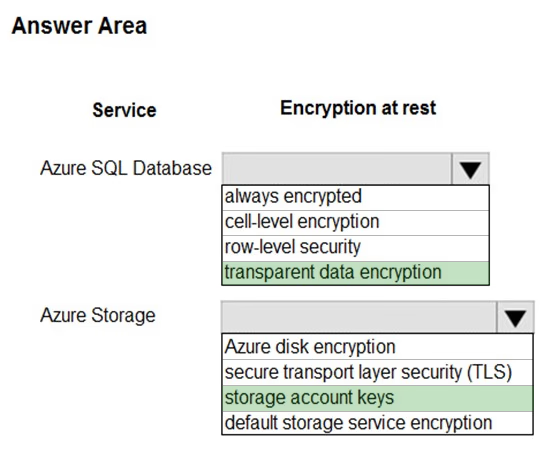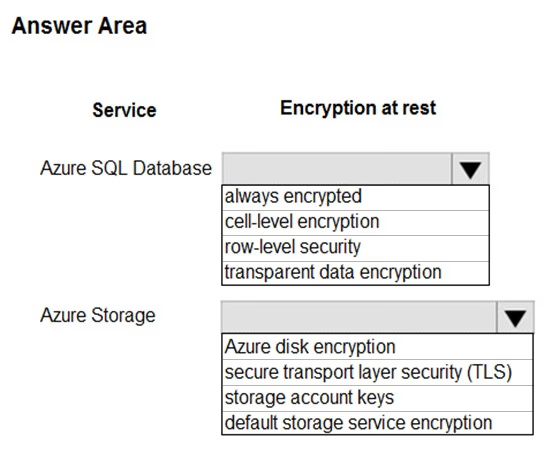
Box 1: transparent data encryption
TDE with customer-managed keys in Azure Key Vault allows to encrypt the Database Encryption Key (DEK) with a customer-managed asymmetric key called
TDE Protector. This is also generally referred to as Bring Your Own Key (BYOK) support for Transparent Data Encryption.
Note: Transparent data encryption encrypts the storage of an entire database by using a symmetric key called the database encryption key. This database encryption key is protected by the transparent data encryption protector.
Transparent data encryption (TDE) helps protect Azure SQL Database, Azure SQL Managed Instance, and Azure Data Warehouse against the threat of malicious offline activity by encrypting data at rest. It performs real-time encryption and decryption of the database, associated backups, and transaction log files at rest without requiring changes to the application.
Box 2: Storage account keys -
You can rely on Microsoft-managed keys for the encryption of your storage account, or you can manage encryption with your own keys, together with Azure Key
Vault.
References:
https://docs.microsoft.com/en-us/azure/sql-database/transparent-data-encryption-azure-sql https://docs.microsoft.com/en-us/azure/storage/common/storage-service-encryption

